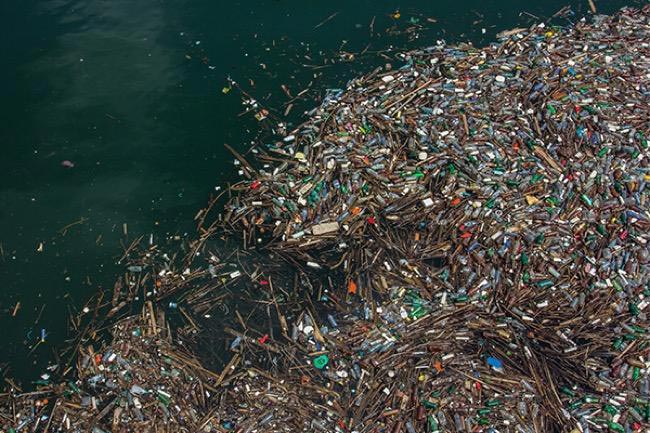McMaster researcher warns plastic pollution in Great Lakes growing concern to ecosystem

Plastic pollution in the Great Lakes. Credit: Alliance for the Great Lakes
In an article published this month in the Journal of Waste Resources and Recycling, Gail Krantzberg, a professor in the Booth School of Engineering Practice and Technology at McMaster University, argues that while plastic waste in the oceans has generated widespread global attention, few realize the problem is also getting much worse closer to home.
“We are increasingly detecting microplastics in the waters and fish and wildlife in the Great Lakes,” she says. “A fish with a gut full of plastics cannot be a healthy fish and can, in fact, starve to death. We know this problem is increasing in severity.”
Microplastics, which are typically less than 5 mm in size, are found in textiles, medicines and personal care products such as facial scrubs, toothpastes and cleansers.
Significant concentrations of microplastics have found their way into the Great Lakes and surrounding watersheds for several reasons which include dense urban populations which produce more plastic litter, increasingly severe storms which overwhelm municipal water treatment facilities sending runoff into the ecosystem and the failure of recycling efforts.
Much of what we believe we are recycling actually ends up in the landfill and flies away into our streams, rivers and lakes, explains Krantzberg.
Some studies have found that plastic debris can travel up to 100 km in the atmosphere, possibly further, and accumulates in large quantities along shorelines, beaches, and in open freshwater and marine environments.
“It is hard to conceive of recapturing all the plastics that are now in the lakes, but we can make a difference by eliminating many unnecessary plastics from use such as plastic straws, cutlery, bags and other disposable waste,” she says.
By some estimates, the overall economic impact of plastics to marine ecosystems is expected to reach $13-billion US per year.
Media Contact
All latest news from the category: Ecology, The Environment and Conservation
This complex theme deals primarily with interactions between organisms and the environmental factors that impact them, but to a greater extent between individual inanimate environmental factors.
innovations-report offers informative reports and articles on topics such as climate protection, landscape conservation, ecological systems, wildlife and nature parks and ecosystem efficiency and balance.
Newest articles

NASA: Mystery of life’s handedness deepens
The mystery of why life uses molecules with specific orientations has deepened with a NASA-funded discovery that RNA — a key molecule thought to have potentially held the instructions for…

What are the effects of historic lithium mining on water quality?
Study reveals low levels of common contaminants but high levels of other elements in waters associated with an abandoned lithium mine. Lithium ore and mining waste from a historic lithium…

Quantum-inspired design boosts efficiency of heat-to-electricity conversion
Rice engineers take unconventional route to improving thermophotovoltaic systems. Researchers at Rice University have found a new way to improve a key element of thermophotovoltaic (TPV) systems, which convert heat…



